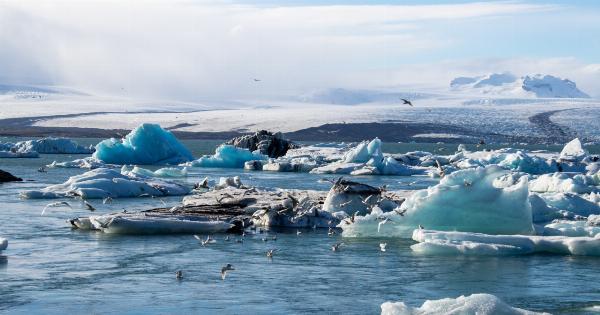Climate change, also known as global warming, is one of the most significant issues that we are facing today. It has severe consequences, including rising sea levels, heatwaves, floods, and more.
However, the impact of climate change is not just limited to natural disasters; it is also affecting the nutritional value of our food. In this article, we will explore how climate change is impacting the nutritional value of our food and what we can do to mitigate its effects.
Climate change and its effects on crop nutrition
Climate change is leading to extreme weather events, such as droughts, heatwaves, and floods. These weather events have a profound impact on the growth and nutrition of crops.
Droughts, for instance, can cause a decrease in crop yields and reduce the nutritional value of crops. According to a study published in the Proceedings of the National Academy of Sciences, rising temperatures and droughts caused by climate change are reducing the nutrient content of important food crops, such as rice and wheat.
Moreover, climate change is leading to changes in soil nutrient content. Rising carbon dioxide levels and increased temperatures are causing a decrease in the levels of zinc, iron, and other micronutrients in the soil.
This decrease is having a profound impact on the nutritional value of crops that rely on these nutrients to grow. As a result, crops grown in areas affected by climate change are becoming less nutritious over time.
The impact of climate change on livestock nutrition
Climate change is not just affecting crops; it is also having a significant impact on livestock nutrition. Rising temperatures and dry conditions are leading to a decrease in the quality and availability of grazing land for livestock.
This decrease in grazing land is causing a significant decrease in the quality and quantity of feed available to livestock. As a result, livestock are becoming malnourished, and their meat and dairy products are becoming less nutritious over time.
Climate change and its effects on fish nutrition
Climate change is also having a profound impact on fish nutrition. Rising sea temperatures and ocean acidification are causing a decrease in the availability of important nutrients in the ocean.
For instance, plankton, which is the base of the ocean food chain, is becoming less nutritious due to the acidification of the ocean’s waters. This decrease in plankton nutrition is having a significant impact on the nutrition of fish that rely on plankton as their primary source of food.
Mitigating the effects of climate change on food nutrition
There are several steps that we can take to reduce the impact of climate change on food nutrition. One of the most effective solutions is to adopt sustainable agricultural practices that aim to reduce greenhouse gas emissions and preserve soil health.
These practices include crop rotation, conservation tillage, and the use of cover crops. By adopting sustainable agricultural practices, we can reduce the impact of climate change on soil nutrient content and preserve the nutritional value of our crops.
Additionally, we can reduce our carbon footprint by adopting a plant-based diet. Plant-based diets have been shown to have a lower impact on the environment and can help reduce greenhouse gas emissions.
Moreover, plant-based diets tend to be rich in nutrients and can be an effective way to combat the effects of climate change on food nutrition.
Conclusion
Climate change is having a significant impact on the nutritional value of our food. Rising temperatures, droughts, and other extreme weather events are causing a decrease in the quality and availability of nutrients in our food.
However, we can mitigate the effects of climate change on food nutrition by adopting sustainable agricultural practices and reducing our carbon footprint. By taking these steps, we can ensure that our food remains nutritious and healthy for generations to come.



























